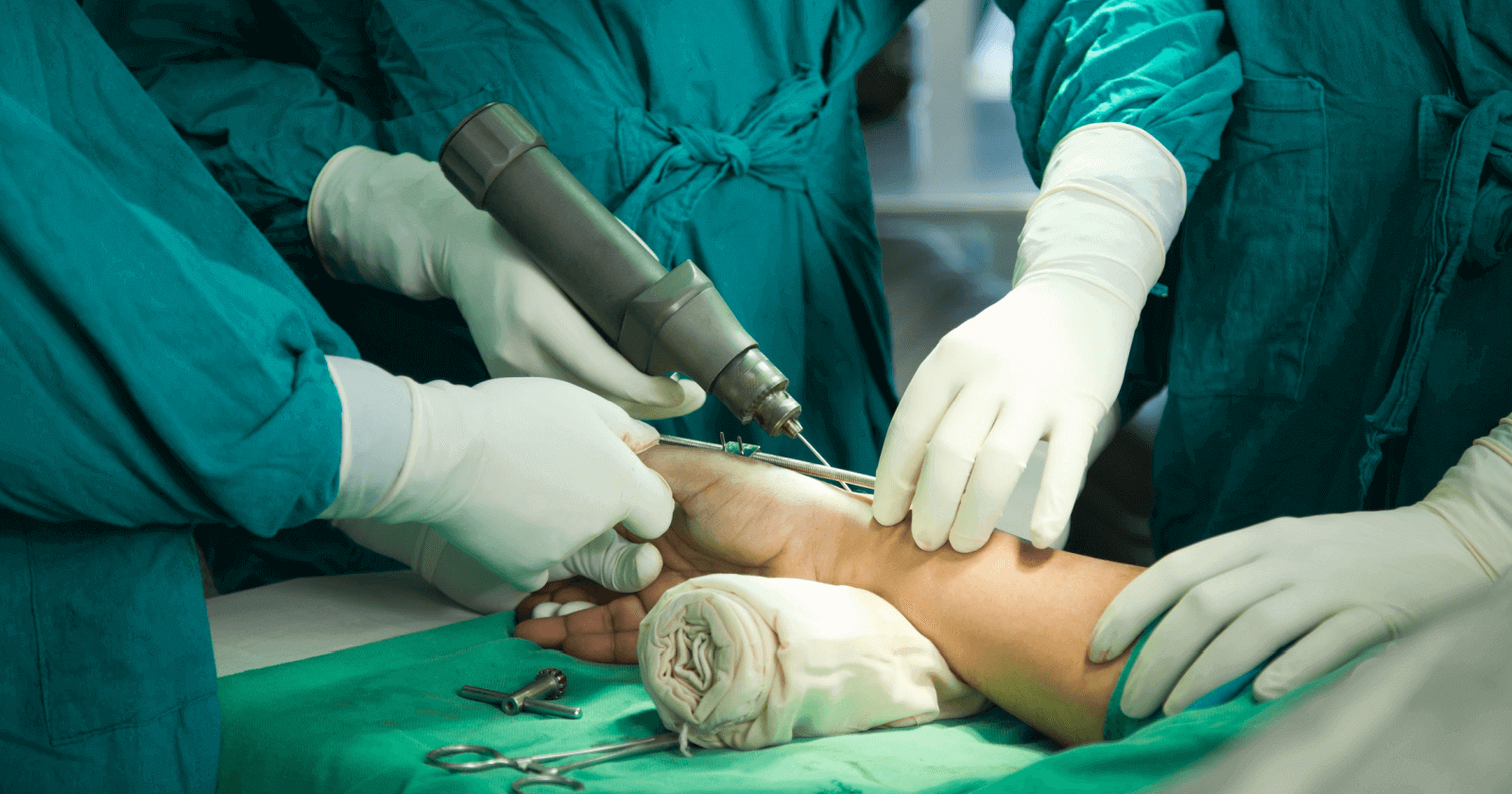Hand surgery is a specialized field of surgery focused on treating conditions affecting the hand, wrist, and forearm. A condition where the median nerve is compressed at the wrist, causing pain, numbness, and weakness. A condition where the fascia (tissue under the skin) in the palm thickens and tightens, causing fingers to bend towards the palm. A thorough evaluation by a hand surgeon or orthopedic specialist is essential to determine the most appropriate treatment. This includes a detailed medical history, physical examination, and imaging studies (such as X-rays or MRI). Recovery from hand surgery varies depending on the type of procedure and the patient's overall health. Rehabilitation often involves physical therapy to restore function, strength, and flexibility.

Hand Surgery
Here are some common problems treated by orthopedic hand surgery :
1. Carpal Tunnel Syndrome :
Compression of the median nerve leading to numbness, tingling, and weakness in the hand.
2. Trigger Finger :
Stenosing tenosynovitis causing finger stiffness and locking.
3. Dupuytren's Contracture :
A condition causing finger curling and stiffness due to tissue thickening.
4. Fractures and Dislocations :
Broken bones or joint dislocations in the hand or fingers.
5. Tendon Injuries :
Ruptures or tears in tendons connecting muscles to bones.
6. Nerve Injuries :
Damage to nerves affecting hand function and sensation.
7. Arthritis :
Osteoarthritis, rheumatoid arthritis, or psoriatic arthritis affecting hand joints.
8. Ganglion Cysts :
Non-cancerous lumps on the hand or wrist.
9. Cubital Tunnel Syndrome :
Compression of the ulnar nerve causing numbness and weakness.
10. De Quervain's Tenosynovitis :
Inflammation of tendons on the thumb side of the wrist.
Orthopedic hand surgery aims to restore function, alleviate pain, and improve the overall quality of life for individuals with these conditions.